Cameroon
For many, the African Cup of Nations has come as a fun moment as they wait eagerly to watch their country play to victory. However, for one Tiku Achale, the season reminds him of what the football season used to be in his home town before the fighting and killing.
There are flashbacks of fans wearing Cameroon team shirts and carrying flags in the streets on match day, even if the Indomitable Lions were playing on the other side of the country.
Some of the more determined ones wore the full team colours, including football boots, he recalls. That is no longer the case in his hometown of Buea, in southwestern Cameroon, where anti-government militias roam the streets making it dangerous to wear a Cameroon jersey.
Support for the government
"They are afraid that the fighters will kill them, beat them or burn down their houses," Tiku Achale said of the supporters, who have all disappeared. This is because a Cameroon shirt could be interpreted by the militias as support for the government.
The militias have been present since fighting broke out in Cameroon's western regions in 2017 between Anglophone separatists and soldiers of the mostly Francophone government based in Yaoundé.
Shots fired
More than 3,000 people were killed in the fighting and more than 700,000 fled their homes. Buea was one of the hotspots of the fighting, with gunfire in the streets and improvised explosive devices exploding.
The African Cup passed through the English-speaking region, albeit briefly. Buea served as a base for four teams for the start of the tournament, and the nearby city of Limbe hosted the group matches and two knockout games in the round of 16.
Separatist rebels
The tournament escaped any major incident in Buea and Limbe, but there were reminders of what daily life is like in the region. The Mali team abandoned a training session at a Buea stadium and were rushed to their hotel under armed guard as gunfire rang out in the area.
The shooting between separatist rebels and government soldiers left two people dead and five injured. Obasse Romeo, a Buea resident and former player for a local club, is circumspect about the situation. "The teams were training with so much apprehension. Imagine if only the military were watching the training sessions. The atmosphere is not there."
Covering up rebellion
Others have criticised what they call a deliberate attempt by the government to use the CAN to cover up the rebellion. Cameroon did not play any matches in Limbe, but local fans, fearful of violence, were drawn to the games by free tickets and, according to some claims, a relaxation of strict restrictions imposed by Covid-19 to ensure the stadiums were not empty and to preserve the host country's image.
"How can people celebrate and play while others are hurt and in tears?" asks Rev Ludovic Lado, a Jesuit priest and activist who has opposed the hosting of the CAN in Cameroon.
Atmosphere of violence
As the Cameroon team prepares to play the semi-finals in Yaoundé on Thursday, with a chance of reaching another final and winning a sixth African title, football in many towns in the English-speaking west is suffocating in an atmosphere of fear and violence.
Players from Buea-based Mount Cameroon FC were recently attacked during a training session by unknown gunmen. Separatist fighters have abducted and tortured members of the Buea University football team.
Fear of kidnapping
A club owner was killed by gunmen in the town of Kumba. Coaches have been kidnapped and many local and semi-professional teams have withdrawn from competitions altogether, sounding the death knell for mass football.
Cameroon's top league has also been affected. When the Yong Sports Academy plays home games in the city of Bamenda, heavily armed security guards surround the pitch.
French-speaking players
At the end of games, visiting teams are evacuated by security forces, says Bakah Derick, a local sports journalist, "without having time to change their shirts". It started, says Derick, "when an armed group attacked the visiting team Dragon FC de Yaoundé".
The fighting drove a wedge between West Cameroon and the rest of the country, but also between Anglophones and Francophones. Yong Sports used to have many French-speaking players in its team, comfortable defending both cultures. Today, only one remains. "These players are afraid of kidnappers and loose balls," says Wanchia Cynthia, head of the Yong Sports club.



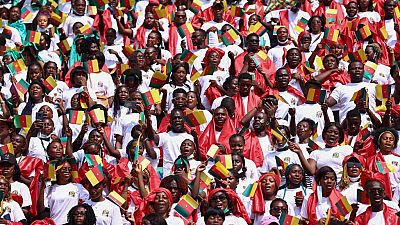

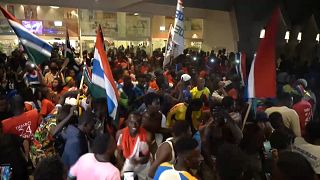
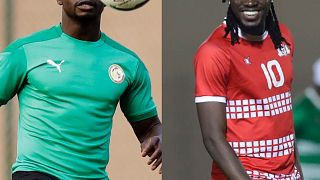
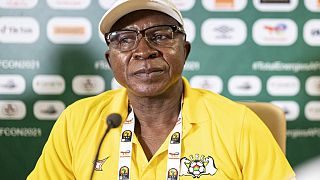

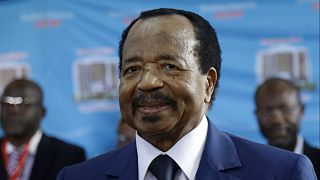
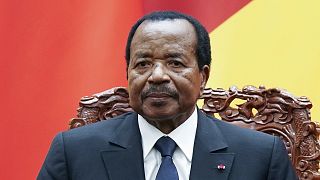



01:20
Amnesty International accuses DR Congo's M23 rebels of possible war crimes
01:08
Separatists' sit-at-home protests caused 700 deaths in Nigeria's southeast, report finds
01:09
Houthis claim downing of U.S. drone amid intensified airstrikes
Go to video
Rwanda-backed rebels enter mineral-rich town in Congo, defying ceasefire calls
Go to video
Army airstrike on a market kills 18 in Mali
Go to video
Democratic Republic of Congo: UN Peacekeeping chief urges immediate ceasefire